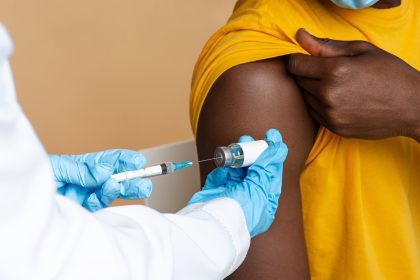For organ transplant recipients, understanding the relationship between their life-saving procedure and potential lymphoma risk remains crucial for long-term health management. This complex connection affects thousands of transplant patients annually, requiring careful monitoring and preventive strategies throughout their post-transplant journey.
The transplant-lymphoma connection
When patients receive organ transplants, they must take immunosuppressive medications to prevent their bodies from rejecting the new organ. While these medications are essential for transplant success, they can create an environment where certain cancers, particularly lymphomas, may develop.
Post-transplant lymphoproliferative disorder (PTLD), a serious condition that can lead to lymphoma, occurs primarily due to these immunosuppressive medications. The Epstein-Barr virus (EBV), present in most adults, can become problematic when the immune system is suppressed, potentially triggering abnormal cell growth in the lymphatic system.
Key warning signs
Transplant recipients should remain vigilant for several symptoms that could indicate lymphoma development:
- Unexplained weight loss over weeks or months
- Persistent fatigue that doesn’t improve with rest
- Swollen lymph nodes, particularly in the neck, armpits, or groin
- Night sweats that soak through sleepwear
- Recurring fevers without apparent infection
- Loss of appetite lasting more than a few weeks
- Unexplained itching or skin changes
Understanding risk factors
Several key factors influence the likelihood of developing post-transplant lymphoma:
- Organ type: Heart and lung transplant recipients face higher risks due to more intensive immunosuppression
- Medication levels: Higher doses of anti-rejection drugs increase lymphoma risk
- EBV status: EBV-negative recipients receiving organs from EBV-positive donors face elevated risks
- Age at transplantation: Young children and older adults may face increased vulnerability
- Time since transplant: Risk levels vary throughout the post-transplant period
Prevention strategies
Medical teams employ several approaches to minimize lymphoma risk in transplant recipients:
Regular monitoring of EBV levels in the blood helps detect potential problems early. Doctors work to find the lowest effective dose of immunosuppressive medications that still prevents organ rejection. Recipients should maintain healthy lifestyle habits, including:
- Following a balanced, nutrient-rich diet
- Engaging in appropriate physical activity
- Getting adequate rest
- Avoiding exposure to infections
- Attending all scheduled medical appointments
- Completing recommended screening tests
Treatment approaches
When lymphoma develops in transplant recipients, treatment requires a delicate balance between fighting cancer and preserving organ function. Common treatment strategies include:
- Carefully reducing immunosuppressive medications
- Administering targeted chemotherapy protocols
- Using monoclonal antibody treatments
- Applying radiation therapy for localized cases
- Considering stem cell transplantation in severe situations
Treatment plans must be highly individualized, considering both the specific type of lymphoma and the transplanted organ’s status.
Managing emotional well-being
A lymphoma diagnosis following transplantation can overwhelm patients and families. Support becomes crucial through:
- Professional counseling services
- Transplant support groups
- Cancer survivor networks
- Regular communication with the medical team
- Family and friend involvement
- Stress-reduction techniques
Health care providers should actively connect patients with appropriate emotional support resources throughout their treatment journey.
The role of patient advocacy
Successful management of post-transplant lymphoma requires active patient participation. Recipients should:
- Maintain detailed records of symptoms and medications
- Ask questions about unclear medical information
- Seek second opinions when appropriate
- Stay informed about new treatment options
- Build strong relationships with their medical team
- Participate in support networks
Looking ahead
While the connection between organ transplants and lymphoma presents significant challenges, medical advances continue to improve outcomes. Early detection through vigilant monitoring, combined with increasingly sophisticated treatment options, offers hope for better management of this serious complication.
Transplant recipients should remember that knowledge and proactive health management remain their strongest allies. Working closely with their medical teams, maintaining healthy habits, and staying alert to potential symptoms helps ensure the best possible outcomes for both their transplanted organ and overall health.
This story was created using AI technology.














